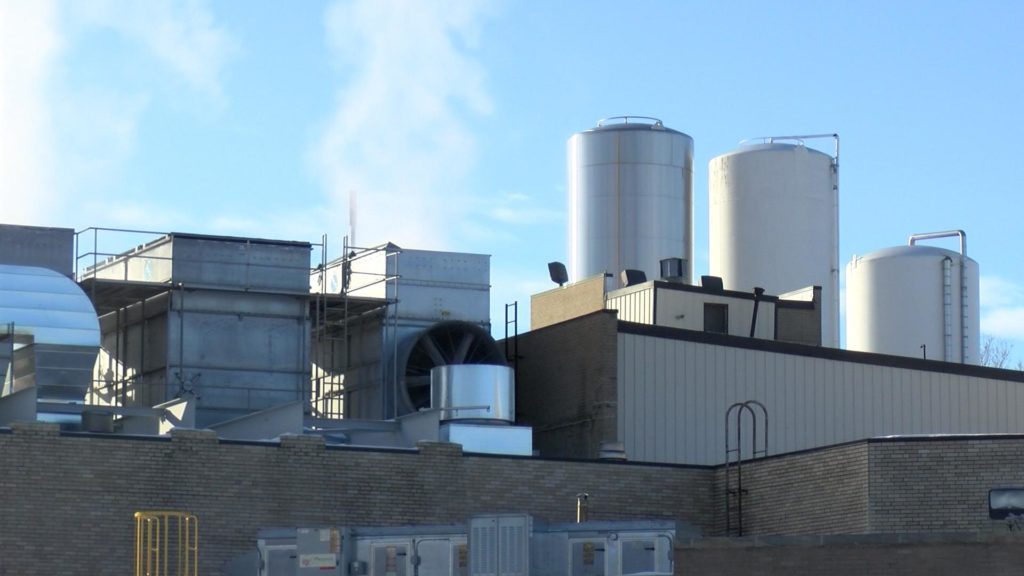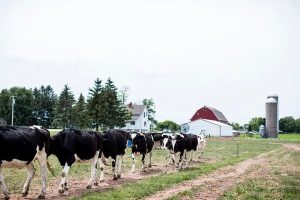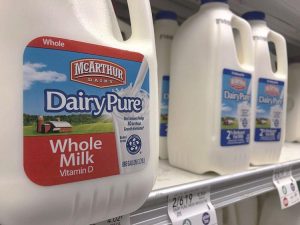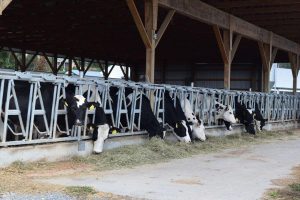
Dean Foods is the third largest milk processor in the nation. As such, it processed milk produced by Michigan farmers. Most dairy farmers in Michigan belong to a cooperative that markets their milk. One of those cooperatives is Dairy Farmers of America (DFA), a national member-owned cooperative for which Dean Foods is their largest customer. The milk from Michigan members of that cooperative went to Dean Foods processing plants.
Will milk still be picked up and paid for?
According to reports on the Dean Foods website, Dean’s has secured funding to continue operations while they work through bankruptcy and potential sales of some of their assets, including milk processing plants. In the near term, Dean Foods will still be buying milk from DFA, milk tank trucks will still show up at those farms every day and farmers will get paid as before.
Though business analysts saw the bankruptcy coming after Dean Foods reported financial losses in 7 of the last 8 quarters, it is still a major disrupter in the dairy markets. There are fewer processors in the industry as markets have consolidated over recent years. In fact, Dean Foods was a major contributor to that consolidation by buying out many smaller fluid milk processors.
Dean’s suffered the loss of major customers
Dean Foods built their business on fluid milk sales. When they were flying high, Dean’s milk was carried in outlets nationwide, including Walmart stores. In the last couple of years, Walmart opted to source their milk from other cooperatives and process it themselves in a new plant built near Ft. Wayne, Indiana. While fluid milk sales are down, total dairy consumption nationally and internationally is up, and cheese and butter per capita consumption in the U. S., in particular, are at all-time highs.
Consolidation hits all industries and dairy is certainly no exception. Not only has the processing industry been affected by it, but so too has the production side at farms. In Michigan, we have seen a loss of hundreds of farms over the past few years as farm prices have been low, below cost of production for most farms, and farms of all sizes have sold their cows. Today in Michigan, we have approximately the same number of cows as we did 4 years ago, but on fewer farms.
Consolidation is an economic reality, but it comes with costs as well as benefits. The loss of control by any small farm is keenly felt by the owners and employees. Farms are multi-generational, stretching back oftentimes 4 to 5 generations. Families have invested their lives and their returns in the farm and are sometimes left with little when forced to sell.
The loss is also felt in the community. Farms are the backbone of the rural economy in many communities. They employ people locally, buy supplies and pay for services locally. A rule of thumb is for every 300 cows, $1M comes into the community from outside the area, most of that is then spent in the area.
Dairy impacted by worldwide events
Dairy markets are international. What happens to the markets in foreign countries impacts the markets here. For example, China and other Asian countries are undergoing a major disease outbreak in their swine herds called African Swine Fever (ASF). That impacts US dairy markets because China was a buyer of whey as a protein source to feed pigs. Whey is a byproduct of the cheese-making process. As the demand for whey has waned, prices dropped.
There are more direct ways in which dairy markets are impacted worldwide. Whether it is production in the European Union or New Zealand and Australia, milk production changes impact where milk and dairy products flow to in the world.
The US exports approximately 17% of milk production. Our biggest trading partner is Mexico and current trade negotiations have impacted that market. If the US loses export market share, that milk must find a home in our country and it usually does so at a lower price.
Bankruptcy Impact
Michigan has been a growth state for dairy over the past 20 years, increasing cow numbers and increasing milk per cow. In fact, Michigan farmers produce more milk per cow than the average for any other state. They also produce some of highest quality milk in the nation. Yet the downside of the rise in production is that processing capacity in Mi has been exceeded and until more capacity comes on line, the milk that Michigan farms produce has been discounted for the costs to ship it farther away.
The Dean Food bankruptcy will have lasting impacts on the milk markets. We don’t know at this time which plants in Michigan will stay open and which will be closed. Processing capacity is a critical limitation. Milk is a perishable product that must be processed quickly. That means that the milk in stores is fresh, often having gone from cows to store shelf in 48 hours. As the industry changes, so too do the costs and returns for milk production.
Our farmers are resilient, but they too are concerned about the future and about their business. This is remarkable because they produce a product that is a great source of nutrition for people of all ages and therefore, should be in great demand. The protein, energy, mineral and vitamins are what people need in their diets and dairy should be a part of diets every day for better health.
Sometimes people ask how they can help Michigan dairy farmers. The answer is simple; buy dairy products for your family. That is a win for your family, and a win for farmers.

























